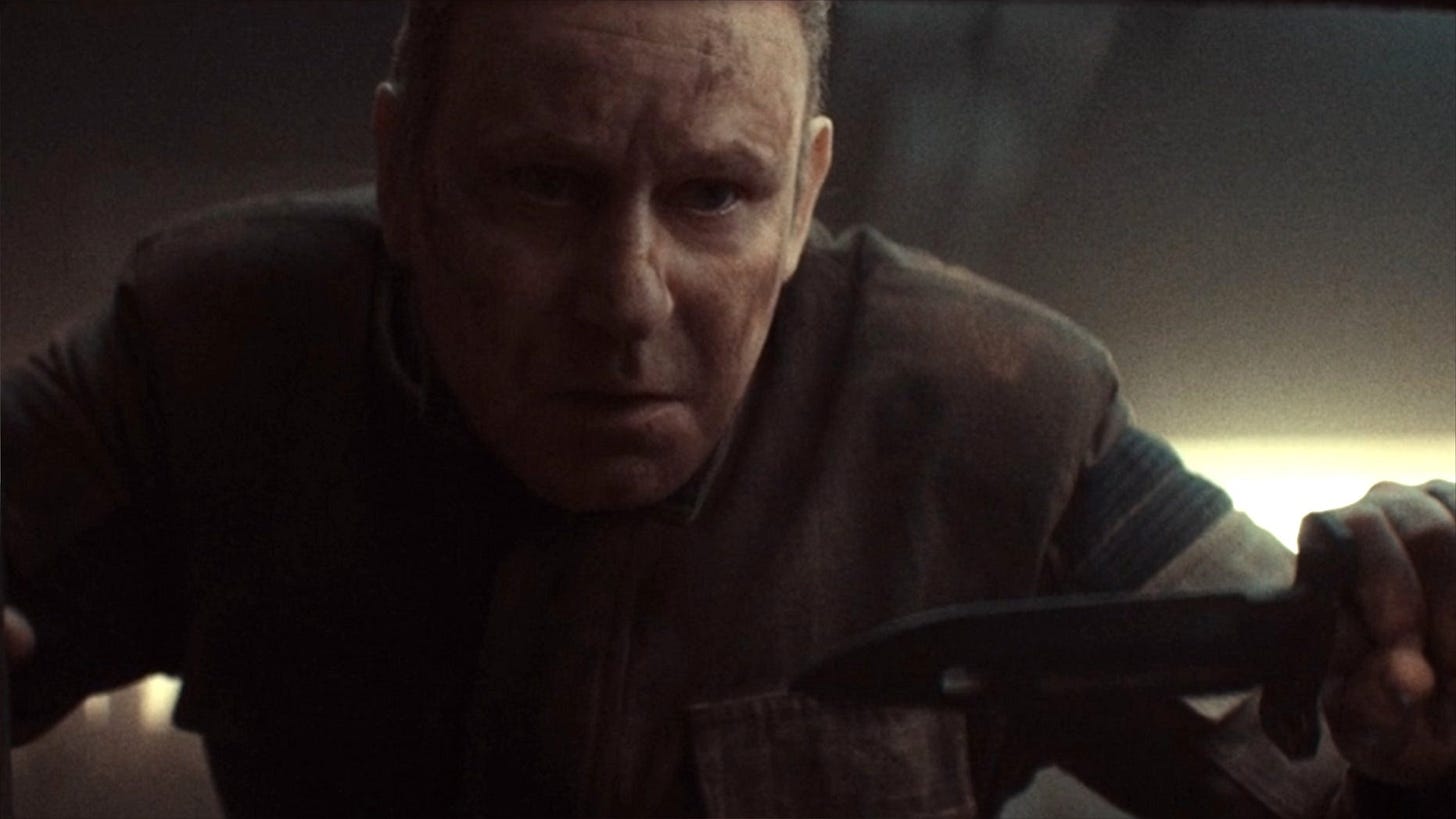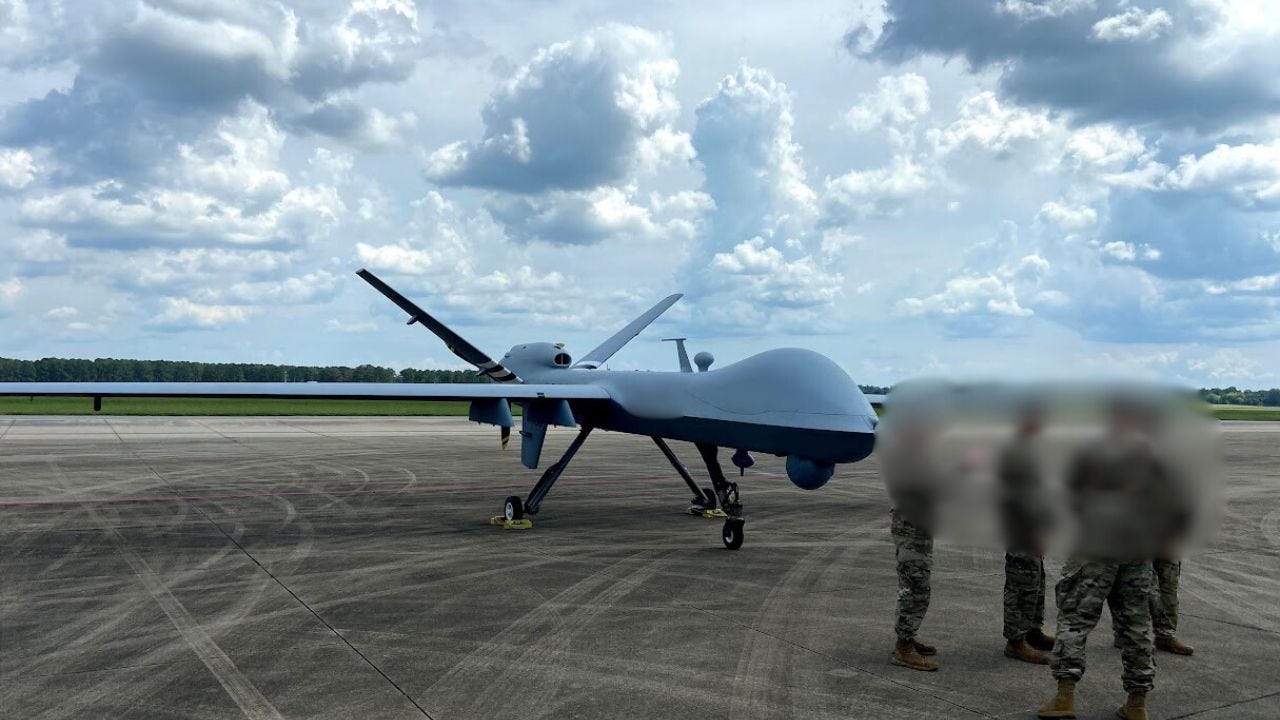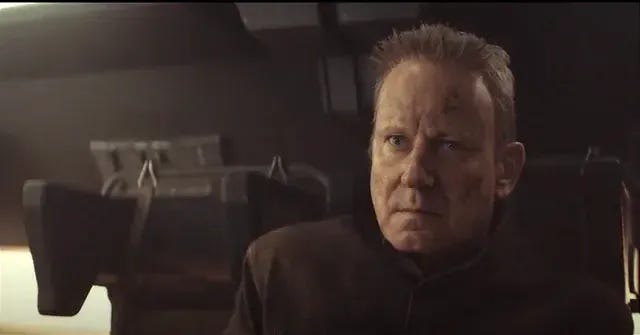The Forgotten Sergeant Who Sparked a Rebellion
Part 1: Redemption Begins with a Choice
Luthen Rael proves that even the most broken versions of ourselves have something to offer the cause.
Luthen is not a traditional Star Wars hero. His story is one of finding (or creating) agency after feeling stuck within a corrupt and cruel system. This is where we see Luthen in a flashback discovering his role as a “sergeant,” a non-commissioned officer in the Imperial Army. He's overwhelmed by the horrors of Imperial “peacekeeping.” He literally runs away. He hides. He just wants the violence to end.
He wants to make it stop. Because, like it or not, he finds himself a party to the violence.
Now we don't know the full story of how or why, but Luthen finds himself involved in a civilian massacre.
In Star Wars, there are tropes: the hero's journey, the call to action/adventure. And Luthen does experience that call. It's just in the form of a poor, terrified girl hiding and pleading for her life. And Luthen’s Burning Homestead moment is when he chooses not to turn her in, but to protect the young Kleya.
Luthen had a choice, and he took it.
There are a lot of things we can't control about the world around us. Luthen had little influence in the vastness of an evil empire committing genocidal acts. That seems so far beyond the scope of a terrified NCO who's in over his head. We don't know the choices that led him to this point, but he still has a choice.
But choice matters. It shapes your perspective.
My first Air Force assignment was at Shaw Air Force Base, supporting the MQ-9 Reaper mission. As a young lieutenant, it was incredibly rewarding.
I was directly supporting real combat missions, helping protect American troops overseas. But the experience also came with a very real sense of dissonance. You're witnessing life-and-death decisions unfold through a full-motion video (FMV) feed, half a world away, inside an air-conditioned operations center. To cope, a culture sometimes develops that minimizes the emotional weight of what you're seeing through dark humor, memes, or mind-numbing repetition. I get why it happens.
You go home to your family after your shift, unlike those deployed on the ground. But that mental distance can be dangerous.
It can become a slippery slope where you stop questioning the systems and people in charge, even if they’re wrong. That’s the parallel I see in Luthen Rael’s story. His wake-up call is the logical extreme of what happens when we ignore the moral cost of our actions for too long. Watching this episode through that lens, I couldn’t help but reflect on my own experience.
Stoicism talks about making the choices that you can make. And that's what Luthen does at this moment. He chooses the harder, but righteous path, and instead of ignoring her or turning her in, he chooses to save Kleya.
This is the moment that changes his path forever. This shows that Luthen isn't desensitized to the violence around him. There's this moral compass that survived in him that obviously hasn't survived in his fellow soldiers, who are ignoring the very real war crimes they're committing.
“He wants that whole street out there on fire.”
This drives him mad, resulting in him muttering to himself - a clear sign of PTSD-like symptoms.
Luthen uttering “Make it stop” tells you that he has a conscience. He still has his moral compass intact enough to tell him that he should save Kleya.
This is right out of Stoic philosophy.
“If someone is able to show me that what I think or do is not right, I will happily change, for I seek the truth, by which no one was ever truly harmed. It is the person who continues in his self-deception and ignorance who is harmed.”
- Marcus Aurelius.
The Empire will crush all those who resist, no matter the cost, and all in the almighty name of “peace, justice, and order.” This justification requires a level of self-deception, and that's a self-deception that Luthen Rael is no longer willing to accept.
More on this next week.
-Riley





